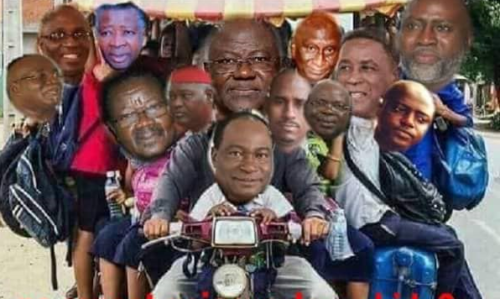By Theresa Vamboi
In Sierra Leone, the long-awaited inquiry into the assets of former President Koroma and other senior public officials in his APC Government, will commence sitting on Monday, 11 November 2019. The inquiry will look into the financial affairs of former president Ernest Bai Koroma, former vice president Victor Bockarie Foh, former ministers, heads of departments and parastatals.
Since 2007 when former president Ernest Bai Koroma and his government took office, after winning presidential and general elections, and then went on to serve two terms before he and his government were voted out in March 2018, there have been serious allegations of rampant corruption and amassing of unexplained wealth that need to be looked into, once and for all to set the record straight and hold them to account fairly.
Many in Sierra Leone believe that former president Koroma was one of the richest presidents on the African continent, alleged to have illegally accumulated hundreds of millions of dollars, stashed away in off-shore accounts and in real estate in Europe.
There are allegations also that the former president owns dozens of real estate properties across the country, especially in Freetown and Makeni – his hometown.
Other former senior government ministers are also alleged to have misappropriated hundreds of millions of dollars from the State. These allegations will be investigated by the Commission of Inquiry set up last year by president Julius Maada Bio, to look into the running of the country by the former president and his ministers.
Sierra Leone is ranked as one of the poorest nations in the world, despite having massive reserves of natural resources and minerals. Average daily income per person in Sierra Leone is less than $1.50, while daily cost of living per household is more than $10.
Over 60% of the adult population are unemployed, with an average life expectancy of less than 50 years. It is estimated that the country loses about $500 million in corruption every year, causing widespread poverty, destitution, illiteracy and poor health among the majority of the population.
A Government Transition Team Committee report published by the Bio-led government last year, said it had found evidence of corruption on a grand scale, estimated at over $2 billion, most of which related to improper public procurement processes, abuse of office, misappropriation of funds, and theft of public property.
What the Commission of Inquiry will seek to do – with the help of the Anti-Corruption Commission is to sift through all the evidence collected by the Transition Team Committee, to match against all allegations of corruption by former government officials.
The Commission will also look into the annual asset declaration forms of former senior government officials, their Bank Account transactions during the period they were in office, in order to identify any mismatch between personal income, expenditure and asset portfolio of each official being investigated.
One thing is certain about this Commission of Inquiry, it may not be liked by the former government officials, but it has set new standards of accountability and probity, for past and present government officials as well as those in the future.
There must be an end to impunity in Sierra Leone. President Bio has started the ball rolling. The Commission of Inquiry into the activities of former government ministers and head of State is enshrined in the country’s laws, and can only be stopped through an Act of Parliament.
The people of Sierra Leone are waiting to hear the truth about corruption in the country, under the presidency of former president Ernest Bai Koroma. Are the allegations of billions of dollars stashed away by the former president and his ministers a myth, or is the nation going to be shocked by what the Commission will find?
This is the statement published by the Commission of Inquiry Secretariat




